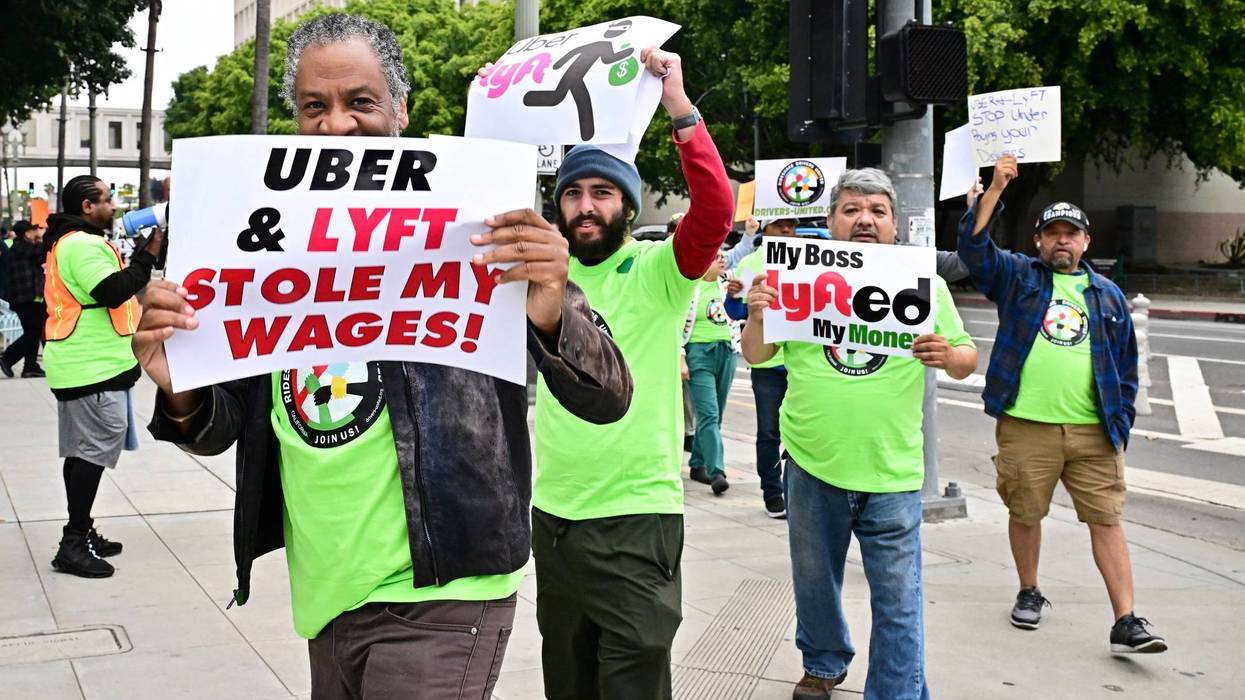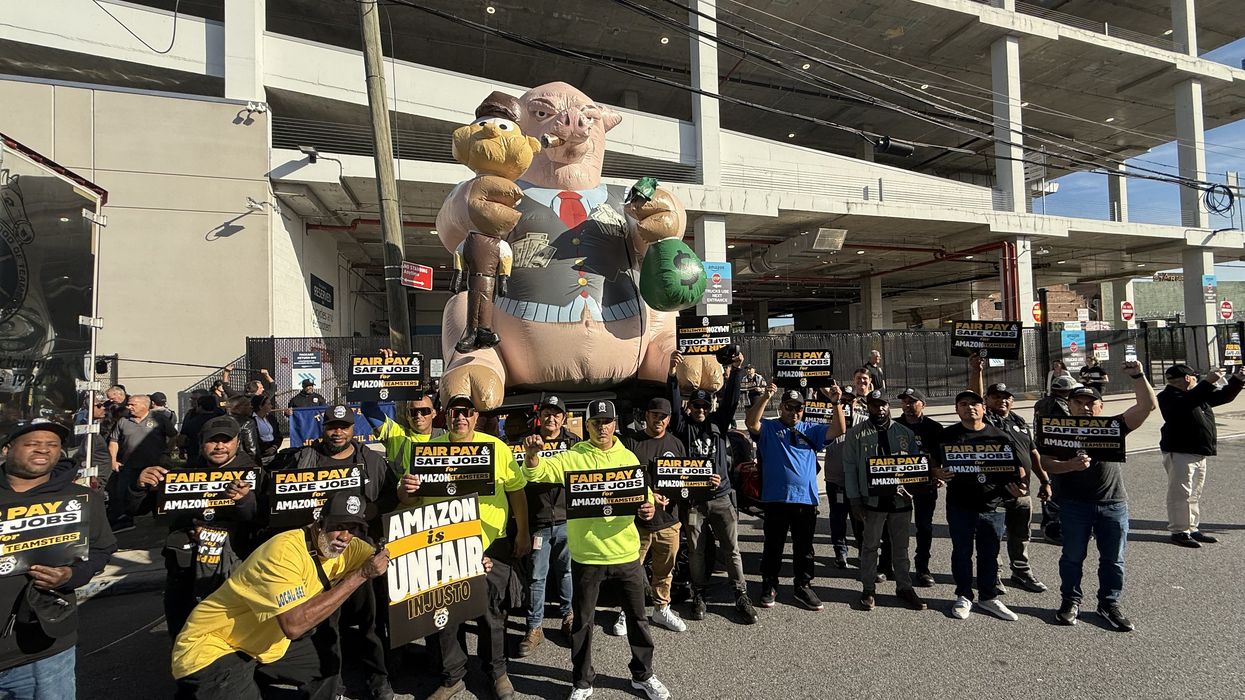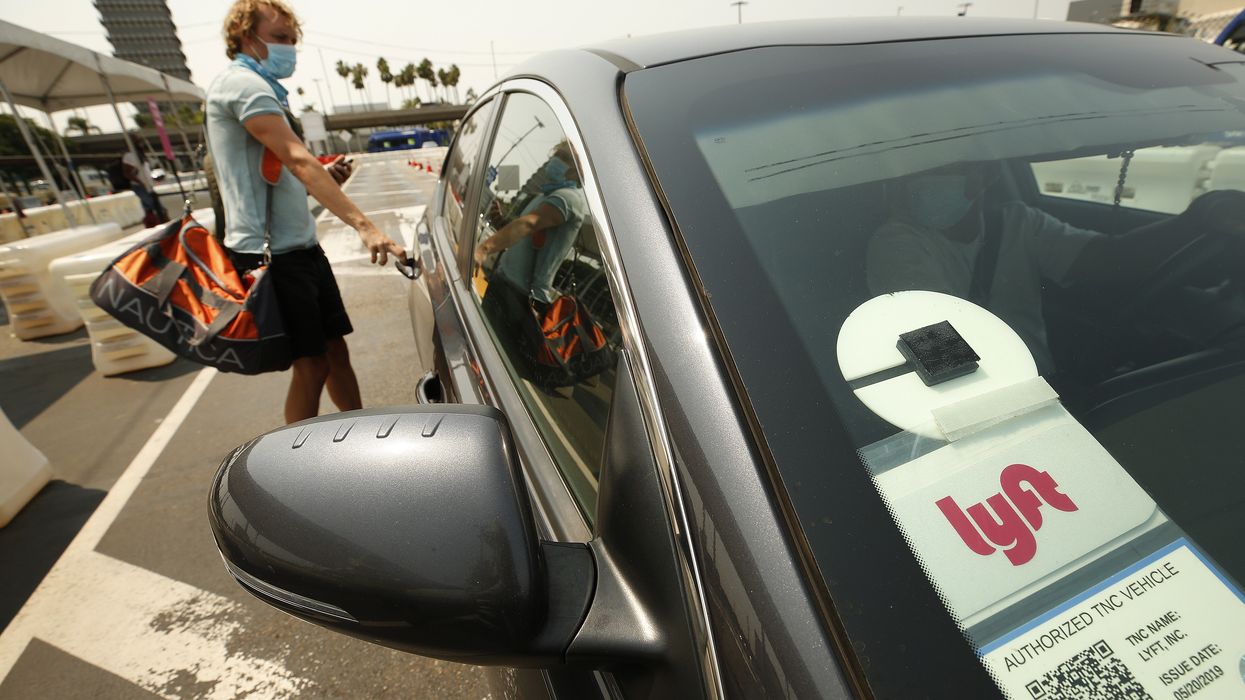Trump's Revived Anti-Worker Rules Condemned as 'Outright Grift'
"Every day, little by little, the Trump administration is rigging the system to benefit giant corporations and shortchange workers," said one senator.
President Donald Trump's "barrage of attacks on workers" continued on Thursday with announcements about two key labor rules.
The US Department of Labor (DOL) proposed an independent contractor rule that the National Employment Law Project (NELP) called "yet another example of the administration siding with major corporations and stacking the deck against working people" by "effectively allowing employers to strip workers of federal minimum wage and overtime protections."
The DOL's Wage and Hour Division proposal would replace the Biden administration's widely celebrated 2024 policy for when employers can treat workers as independent contractors under the Fair Labor Standards Act with business-friendly guidance that resembles a rule adopted just before the end of Trump's first term.
"This rule will have profound real-world consequences for working people," warned NELP. "Misclassification is common in many labor-intensive, poorly paid jobs—jobs like home healthcare, janitorial work, landscaping, personal services, and increasingly, app-dispatched ride-hail and delivery—where people of color and immigrants are overrepresented, and workers lack the bargaining power to negotiate higher wages and better working conditions."
NELP pointed to research showing that low-paid independent contractors "lag behind their employee counterparts," and some "do not even earn the federal minimum wage." The organization stressed that "this rule threatens to enshrine a two-tiered labor system where similarly situated workers receive vastly different rights and protections based on the classification chosen by the business employing them."
The new rule—which now faces a 60-day public comment period—focuses on two "core factors" to determine an employee's classification: the nature and degree of control over the work, and the worker's opportunity for profit or loss based on initiative or investment.
NELP argued that "by elevating two factors above other equally important factors, the Trump administration's test fails to account for the economic realities of many working relationships. Many workers labeled as independent contractors are not really in business for themselves because they are integrated into the operations of a larger business structure that sets most of the terms of the work."
"In app-dispatched ride-hail and delivery jobs, for example, corporations like Uber, Lyft, DoorDash, and Amazon use apps and algorithms to offer shifts or assignments to so-called independent contractors doing the core work of the business, set the wages these workers receive, surveil and assess their performance, and determine if they are offered future assignments or get 'deactivated,'" the group noted. "App-based ride-hail and delivery workers perform difficult and dangerous work without basic employment protections like the right to minimum wage and overtime, workers' compensation, and unemployment insurance."
As NELP and other critics sounded the alarm over the DOL proposal on Thursday, the National Labor Relations Board (NLRB) also revived an effort from Trump's first term, reinstating that administration's 2020 rule on joint employers.
During Trump's initial administration, the NLRB required joint employers to "possess and exercise substantial direct and immediate control" over at least one aspect of the workers' employment. In 2023, under former President Joe Biden, the board decided that two or more entities could be considered joint employers if they had an employment relationship with the workers and helped to determine their terms and conditions of employment. However, the latter was blocked by a Trump-appointed judge the next year.
Unlike the DOL proposal, the board's rule is final. The NLRB—which has two Trump appointees, one Biden appointee, and two vacancies—said in the Federal Register that "the 2023 rule was vacated by the district court, and the action the board takes today merely implements the court's decision. Our action is ministerial and therefore will have no separate economic effect."
US Sen. Patty Murray (D-Wash.), a senior member and former chair of the Senate Health, Education, Labor, and Pensions Committee, declared in a Thursday statement that "every day, little by little, the Trump administration is rigging the system to benefit giant corporations and shortchange workers—it's an outright grift and working people should be furious."
"The joint employer rule is nothing more than a return to Trump's anti-worker policies that let giant corporations skirt their basic obligations to employees—Trump is giving the biggest corporations cover to deny workers their ability to band together for better wages and working conditions and leaving millions of workers in the lurch, vulnerable to egregious violations of their rights," she said.
"At the same time, today, the Trump administration announced they're working to rescind the independent contractor rule," Murray continued. "Trump wants to let giant corporations classify workers as contractors so that they don't have to pay them minimum wage and overtime—these workers deserve fair pay."
The senator then took aim at the so-called One Big Beautiful Bill Act that congressional Republicans passed and the president signed last summer, saying that "under the Trump administration, giant corporations get giant tax breaks paid for by cutting Medicaid—the healthcare that the poorest workers are forced to rely on."
"Now, Trump wants those same corporations off the hook for every benefit, protection, and dollar they'd otherwise owe to millions of workers—it's a shakedown," she asserted. "Republicans are proving time and again, they don't care about workers—they don't want to even let workers have crumbs, but billionaires can get trillions in tax breaks that will blow up our national debt."
Murray isn't up for reelection in November's closely watched midterms, but could lead the Senate Appropriations Committee if Democrats reclaim the chamber. On Thursday, she vowed that "I am going to keep fighting for laws on the books that protect workers and build an economy that grows the middle-class, not just profit margins for the largest corporations on Earth."


